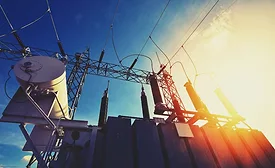Home » Keywords: » power grid security
Items Tagged with 'power grid security'
ARTICLES
Power Grid Upgrades Create Security Risks
The U.S. power grid is in the process of an enormous transformation into a smart grid
September 1, 2014
Sign-up to receive top management & result-driven techniques in the industry.
Join over 20,000+ industry leaders who receive our premium content.
SIGN UP TODAY!Copyright ©2025. All Rights Reserved BNP Media.
Design, CMS, Hosting & Web Development :: ePublishing

